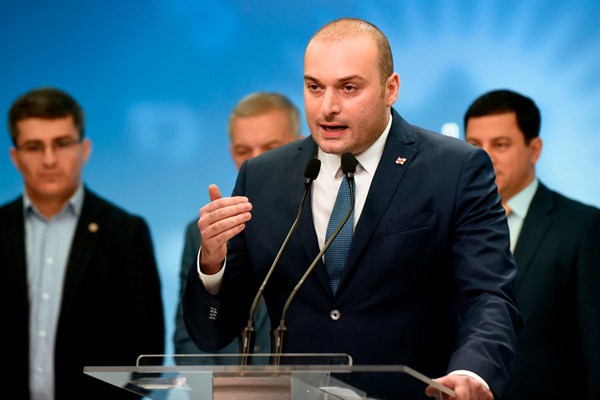In mid-June, Georgia’s former finance minister, Mamuka Bakhtadze, was quickly confirmed as its new prime minister following the resignation of Giorgi Kvirikashvili amid a cloud of party infighting and swelling street protests. Following a swift confirmation by parliament, Bakhtadze announced plans to shrink the size of the Georgian government, while simultaneously pursuing more robust social welfare reforms. Internationally, the new government has vowed to maintain the country’s longstanding pro-Western policies, though broader strategic conditions continue to complicate Tbilisi’s persistent Euro-Atlantic ambitions.
Kvirikashvili departed from the premiership last month almost as abruptly as he found himself catapulted to the leadership in late 2015. He was under pressure from growing protests related to controversial anti-drug raids in Tbilisi by the Interior Ministry and, more consequentially, embattled within his centrist Georgian Dream party, which has been in power since 2012.
Kvirikashvili’s removal and replacement by the 36-year-old Bakhtadze came only weeks after the return of the party’s billionaire founder, former Prime Minister Bidzina Ivanishvili, to an official leadership position within Georgian Dream. Ivanishvili’s return to a formal political role appeared to validate longstanding rumors regarding Ivanishvili’s concerns with Kvirikashvili’s government, which happened to coincide with growing protests demanding Kvirikashvili’s departure. Kvirikashvili himself alluded to these issues upon his resignation, citing unspecified “disagreements” with his party’s leadership.

